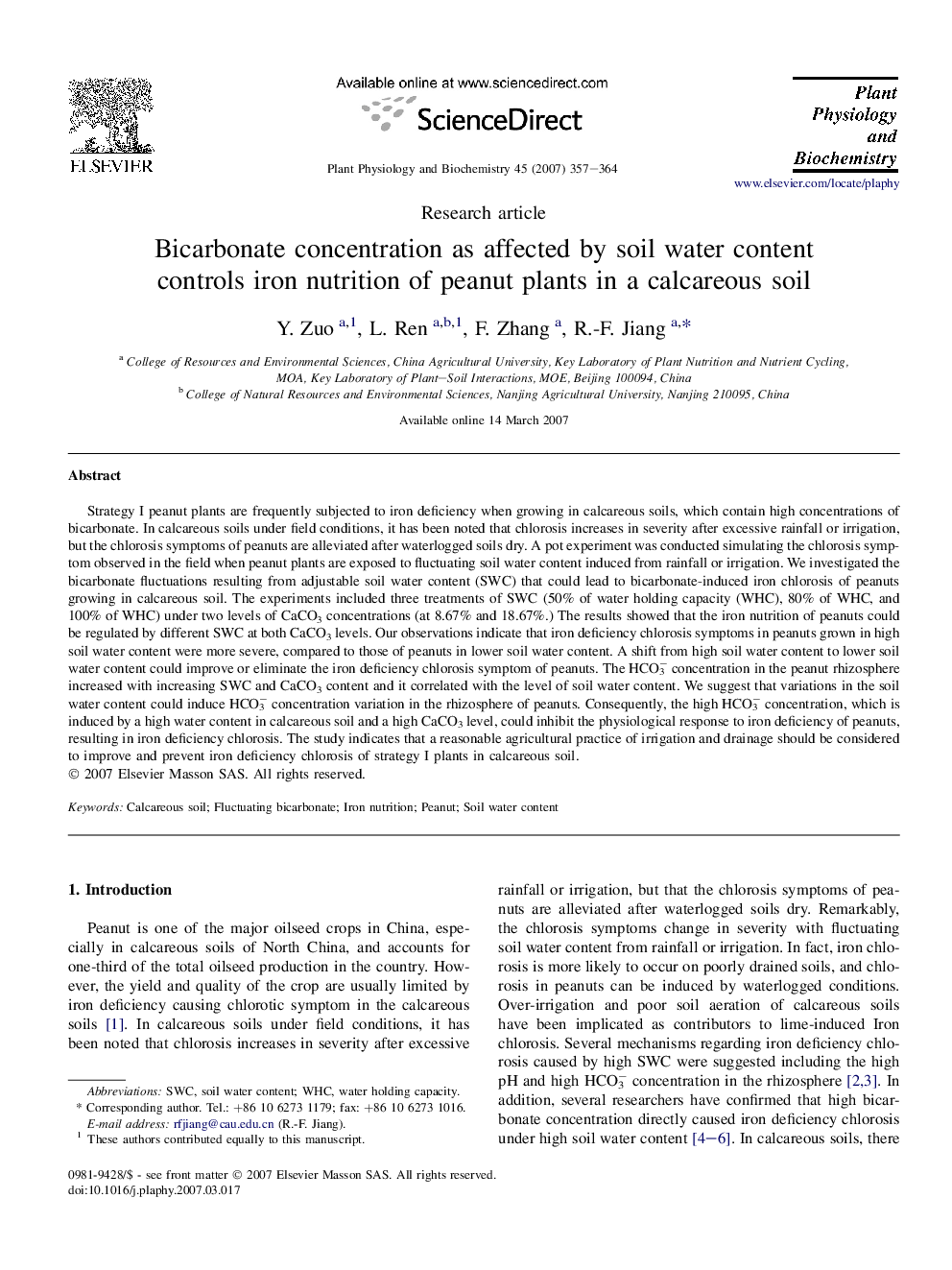| کد مقاله | کد نشریه | سال انتشار | مقاله انگلیسی | نسخه تمام متن |
|---|---|---|---|---|
| 2016844 | 1067701 | 2007 | 8 صفحه PDF | دانلود رایگان |

Strategy I peanut plants are frequently subjected to iron deficiency when growing in calcareous soils, which contain high concentrations of bicarbonate. In calcareous soils under field conditions, it has been noted that chlorosis increases in severity after excessive rainfall or irrigation, but the chlorosis symptoms of peanuts are alleviated after waterlogged soils dry. A pot experiment was conducted simulating the chlorosis symptom observed in the field when peanut plants are exposed to fluctuating soil water content induced from rainfall or irrigation. We investigated the bicarbonate fluctuations resulting from adjustable soil water content (SWC) that could lead to bicarbonate-induced iron chlorosis of peanuts growing in calcareous soil. The experiments included three treatments of SWC (50% of water holding capacity (WHC), 80% of WHC, and 100% of WHC) under two levels of CaCO3 concentrations (at 8.67% and 18.67%.) The results showed that the iron nutrition of peanuts could be regulated by different SWC at both CaCO3 levels. Our observations indicate that iron deficiency chlorosis symptoms in peanuts grown in high soil water content were more severe, compared to those of peanuts in lower soil water content. A shift from high soil water content to lower soil water content could improve or eliminate the iron deficiency chlorosis symptom of peanuts. The HCO3− concentration in the peanut rhizosphere increased with increasing SWC and CaCO3 content and it correlated with the level of soil water content. We suggest that variations in the soil water content could induce HCO3− concentration variation in the rhizosphere of peanuts. Consequently, the high HCO3− concentration, which is induced by a high water content in calcareous soil and a high CaCO3 level, could inhibit the physiological response to iron deficiency of peanuts, resulting in iron deficiency chlorosis. The study indicates that a reasonable agricultural practice of irrigation and drainage should be considered to improve and prevent iron deficiency chlorosis of strategy I plants in calcareous soil.
Journal: Plant Physiology and Biochemistry - Volume 45, Issue 5, May 2007, Pages 357–364